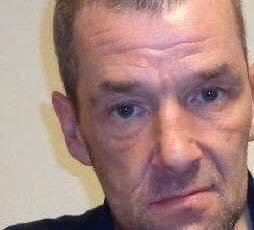Woman's 999 call to police 'ignored' for 90 minutes before she was killed by brother
Police Scotland held records identifying Ms Bowe as a vulnerable person who had been subject to domestic abuse, yet police assessed her call and decided not to attend

A woman's murder could have been prevented if police had responded to her 999 call almost 90 minutes before she was found injured after being attacked by her brother, investigators have found.
Elizabeth Bowe, 50, was found severely injured at her home in St Andrews in September last year after being assaulted by her brother Charles Gordon, and later died.
At around 8pm on the evening of the assault, Ms Bowe telephoned Police Scotland using her brother’s mobile telephone, to report that her brother had stolen her mobile telephone and that he was refusing to return it to her.
She informed the service adviser that she was a vulnerable person, was in a “domestic violence situation” and required her telephone to “call for help” if she needed it.
Police Scotland held extensive records on its systems identifying Ms Bowe as a vulnerable person who had been the subject of domestic abuse. This included allegations that she had been assaulted by Mr Gordon in the past.
The service adviser told the 50-year-old police officers would attend to see her and categorised the call as a Grade 2 priority – a call which requires a police response to be sent within 15 minutes.
But the incident was then transferred to a control room, where it was assessed by a Communications Controller who considered that a crime had not been committed and there was no requirement to send police resources to deal with the report.
At 8.12pm the communications controller attempted to contact Ms Bowe and on receiving no reply, left a voicemail message stating: “Your brother is in the house. He has not stolen your phone. The Police are not going to attend.”
At around 9.24pm, Charles Gordon telephoned Police Scotland via the 999 emergency system stating that he had killed his sister.
Police resources were immediately sent to the home where they found Ms Bowe seriously injured. Gordon was arrested and subsequently convicted of her murder, and in July this year he was sentenced to life in prison.
The Commissioner Kate Frame said: “Had Police Scotland timeously dispatched resources in accordance with their call priority system following Elizabeth Bowe’s 999 call 1 hour and 24 minutes earlier, officers may have arrived at her home prior to her receiving the injuries from which she died and thereby prevented her death.
She has made a number of recommendations to the Chief Constable to ensure that priority calls from vulnerable persons such as Ms Bowe are responded to appropriately.
A statement on behalf of Ms Bowe's family said: “The past year has put a terrible strain on the family and we now just want to move on with our lives. The circumstances of the death of Elizabeth, who was a caring mother and grandmother, was a shock to us all and we appreciate the support we have received, but would now wish our privacy to be respected.”
Police Scotland's Assistant Chief Constable Nelson Telfer said: “Our thoughts remain with the family and friends of Elizabeth Bowe and all those affected by her death. Police Scotland accept the findings of the Pirc report and continue to ensure that the recommendations are implemented.
“In addition, since the incident in September 2016, Police Scotland have given risk and vulnerability training to over 800 staff, which assists in identifying and assessing risk at the first point of contact as well as capturing the right and relevant information.”
Join our commenting forum
Join thought-provoking conversations, follow other Independent readers and see their replies
Comments
Bookmark popover
Removed from bookmarks